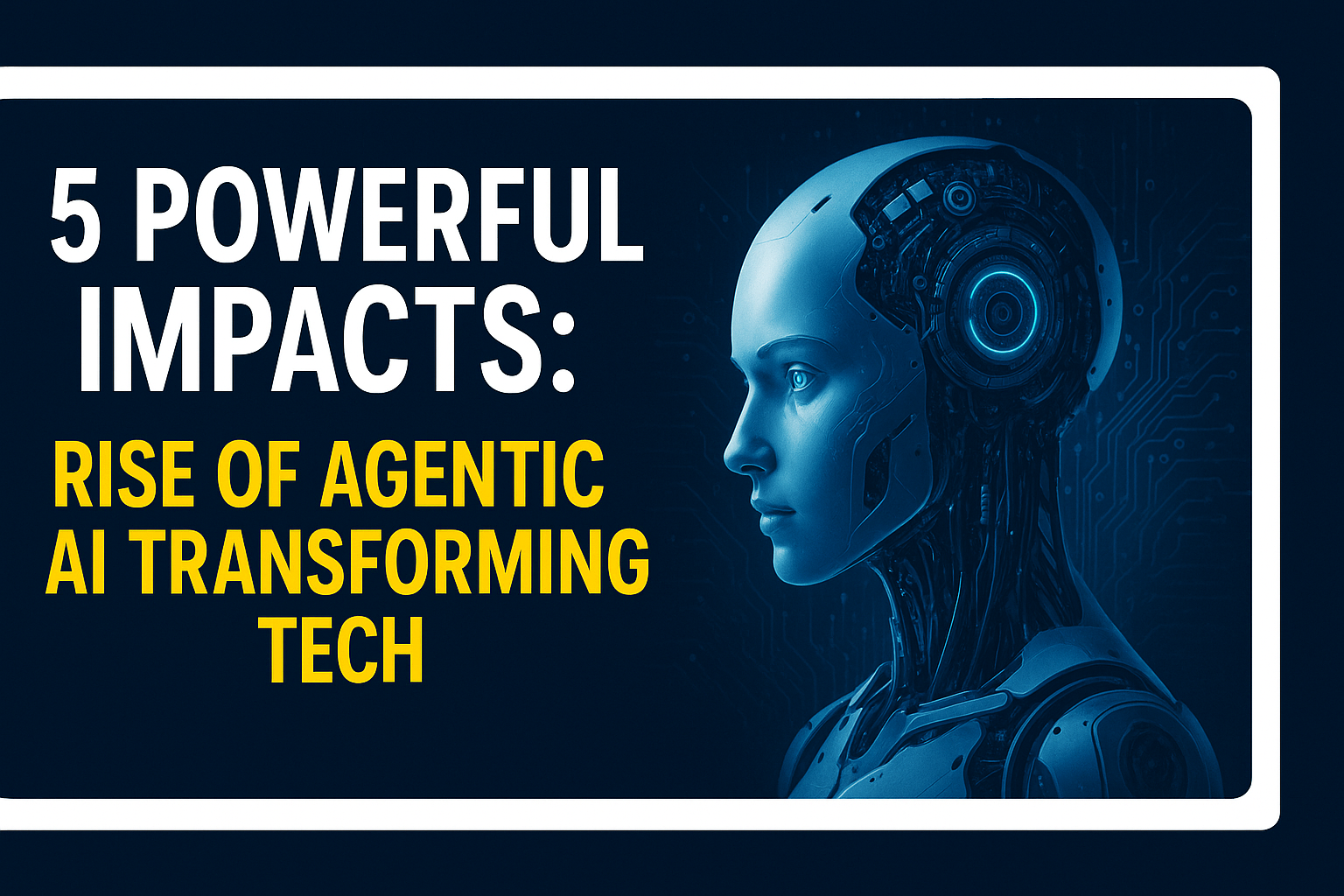How Rise of Agentic AI Reprograms the Game
Rise of Agentic AI is a leap from reactive generative models to standalone systems that are able to perceive, reason, and act on complex goals with little direct human involvement. This second generation of AI has the potential to transform industries and workflows in awe-inspiring ways.
- From Tools to Digital Workers
Legacy AI assistants obey commands. Agentic AI performs better—agents can initiate multi-step agendas, seek and hyperlink information, and even co-work on project completion. Consider a virtual research assistant that summarizes papers, fact-checks, makes reports, and provides follow-up automation. Companies can outsource such virtual employees to execute end-to-end processes, reducing overhead staff and project duration. - Industry-Specific Automation
Off-the-shelf systems do not work efficiently on domain problems. Agentic systems may be engineered or designed as “vertical agents” for finance, health care, or logistics. A bank agent might acquire transaction habits, flag anomalies, and generate compliance reports. A health care agent might merge patient data between departments, suggest treatment regimens, and craft appointment schedules. The vertical architecture translates general AI into expert systems, enhancing productivity and diminishing human errors. - Augmented Agents and Human Interaction
Instead of substituting human labor, agentic AI is designed to augment human decision-making. Agents can present relevant information, run several simulations, and propose options. A product manager might task an agent with mapping user comments, creating feature specs, and recommending test plans—all leaving the manager free to focus on strategy and stakeholder alignment. This way of working accelerates productivity and allows teams to take on more ambitious projects without fear. - New Ethics and Governance Challenges
With autonomy comes responsibility. Because agents make decisions, questions of accountability, bias, and transparency emerge. Who is accountable if an agent crashes a financial portfolio or misallocates medical equipment? Organizations must develop governance mechanisms—agent authority levels, audit trails, and human checkpoints for monitoring. Ethical guardrails stop agentic AI from straying from corporate values and regulatory norms, and from inflicting unintentional harm. - Driven Competitive Advantage and Innovation
Early adoption of agentic AI gives businesses a competitive advantage. In automating complex workflows, they can reallocate talent to creative, high-value work. R&D staff can spin up agents to run simulations, map patent landscapes, or even generate research abstracts—shorter innovation cycles. Agents can independently handle tier-1 issues for customer service, reducing wait times and improving satisfaction. As more firms integrate agentic AI, we’ll see a surge in new products, services, and business models that were previously too complex or time-consuming to develop.
Rise of Agentic AI isn’t just a buzzword—it’s a transformative shift toward systems that think, plan, and act on our behalf. As these agents mature, they’ll redefine job roles, accelerate innovation, and demand robust ethical and governance standards.
For the latest on AI trends, look to our Tech page.
To read more about agentic AI research, click on this paper.



